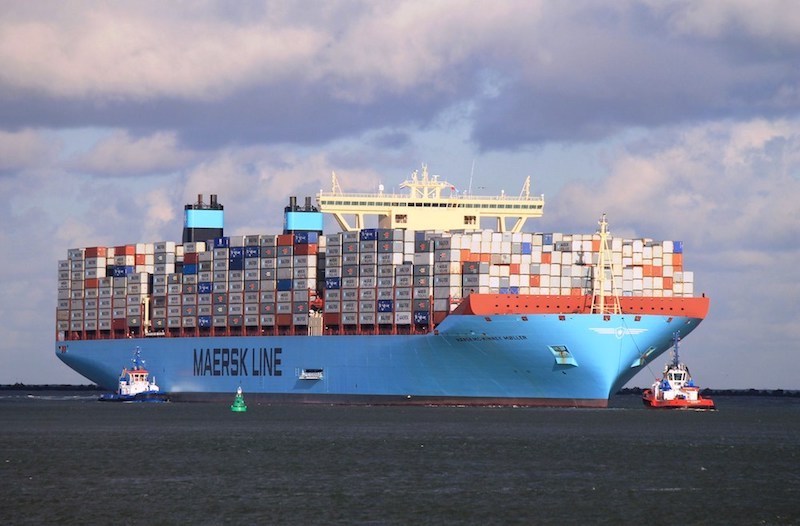Maersk Retrofits 200 Ships for Cleaner Seas

Maersk is rolling out one of the largest retrofit programs in shipping, upgrading 200 chartered vessels in partnership with 50 shipowners. The effort targets lower fuel use, more cargo capacity, and significant cuts in greenhouse gas emissions.
Copenhagen-based shipping giant A.P. Moller Maersk is taking a major step toward greener operations by retrofitting around 200 vessels in its time-chartered fleet. The program, launched in collaboration with 50 different shipowners, is designed to reduce greenhouse gas emissions, cut costs, and improve cargo-carrying capacity.
Ahmed Hassan, Head of Asset Strategy and Strategic Partnerships at Maersk, said the initiative is central to both environmental and commercial goals. “Our medium- and long-term chartered fleet makes up a significant proportion of our operations as well as of our total fuel consumption. By working closely with our partners, we aim to implement solutions that not only reduce emissions but also enhance the overall competitiveness of our fleet,” he explained.
The work is broad in scope. More than 1,500 projects have already been completed, with another 1,000 expected to wrap up by 2027. Costs are being shared between Maersk and vessel owners, which Hassan described as a “win-win” model. “At Maersk, we can reduce both emissions and fuel costs, while the owners get the long-term value of a modernised vessel,” he said.
A common focus is the replacement of older propellers and bulbous bows. Many ships in the fleet were originally designed for faster sailing speeds, leaving efficiency gains untapped as modern schedules have slowed. “There lies a big efficiency potential in replacing them,” said Anda Cristescu, Head of Chartering and Newbuilding at Maersk.
Other upgrades include auxiliary engine waste heat recovery systems, which capture heat to produce steam and reduce reliance on boilers, and shaft generators that cut down on auxiliary engine use. Structural modifications are also boosting cargo capacity by raising wheelhouses, strengthening deadweight capacity, and improving loading systems.
Maersk has set a target of reducing its Scope 1 greenhouse gas emissions by 35% by 2030 compared with 2022 levels, with the broader aim of net zero by 2040. While the long-term path will require alternative fuels and new vessels, Hassan emphasized that immediate changes are just as important. “Investments in existing fleet efficiency enhancement technologies is a powerful tool to gain significant emissions reductions in the short term. Consequently, this strong emphasis on efficiency measures can deliver tangible progress towards our 2030 goal. That goes for owned as well as chartered vessels,” he said.For an industry under pressure to curb its environmental impact, Maersk’s program illustrates how retrofitting older ships can play a central role in the transition to cleaner shipping.
Source: vesselperformance Arnel Murga
